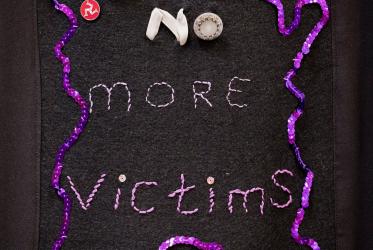Displaying 1 - 20 of 1030
11 April 2024
WCC, WHO commemorate 50 years of collaboration
04 April 2024
Voice of churches vital during UN women’s rights talks
28 March 2024
Compendium of Promising Practices of African Faith Community Interventions against Paediatric and Adolescent HIV
Executive Summary
23 March 2024
On International Women’s Day, find ways to end femicide
29 February 2024
What can churches do to prevent modern slavery?
22 February 2024















